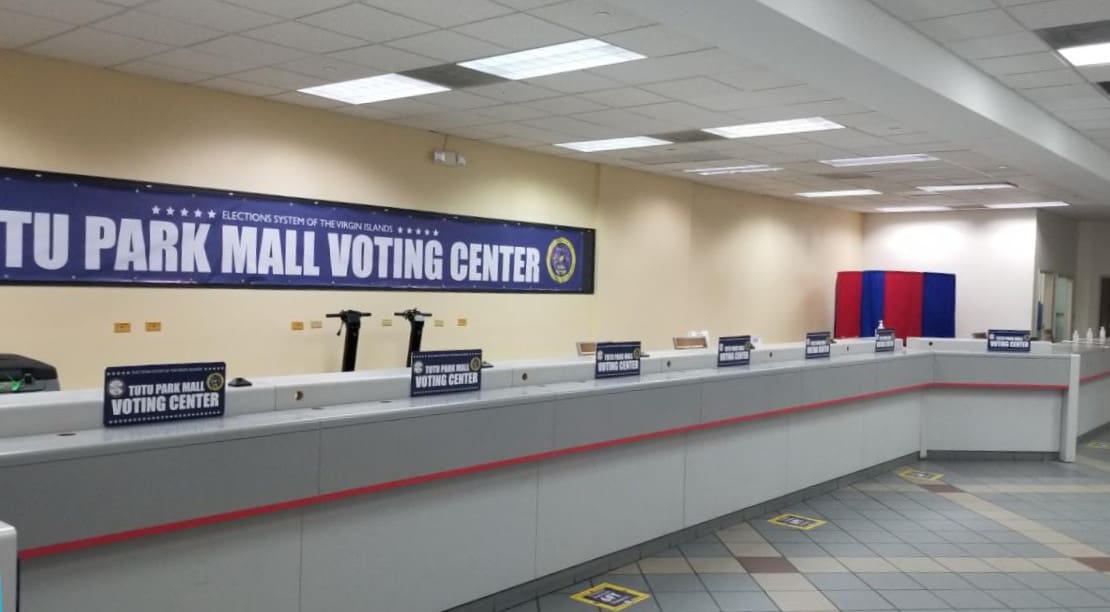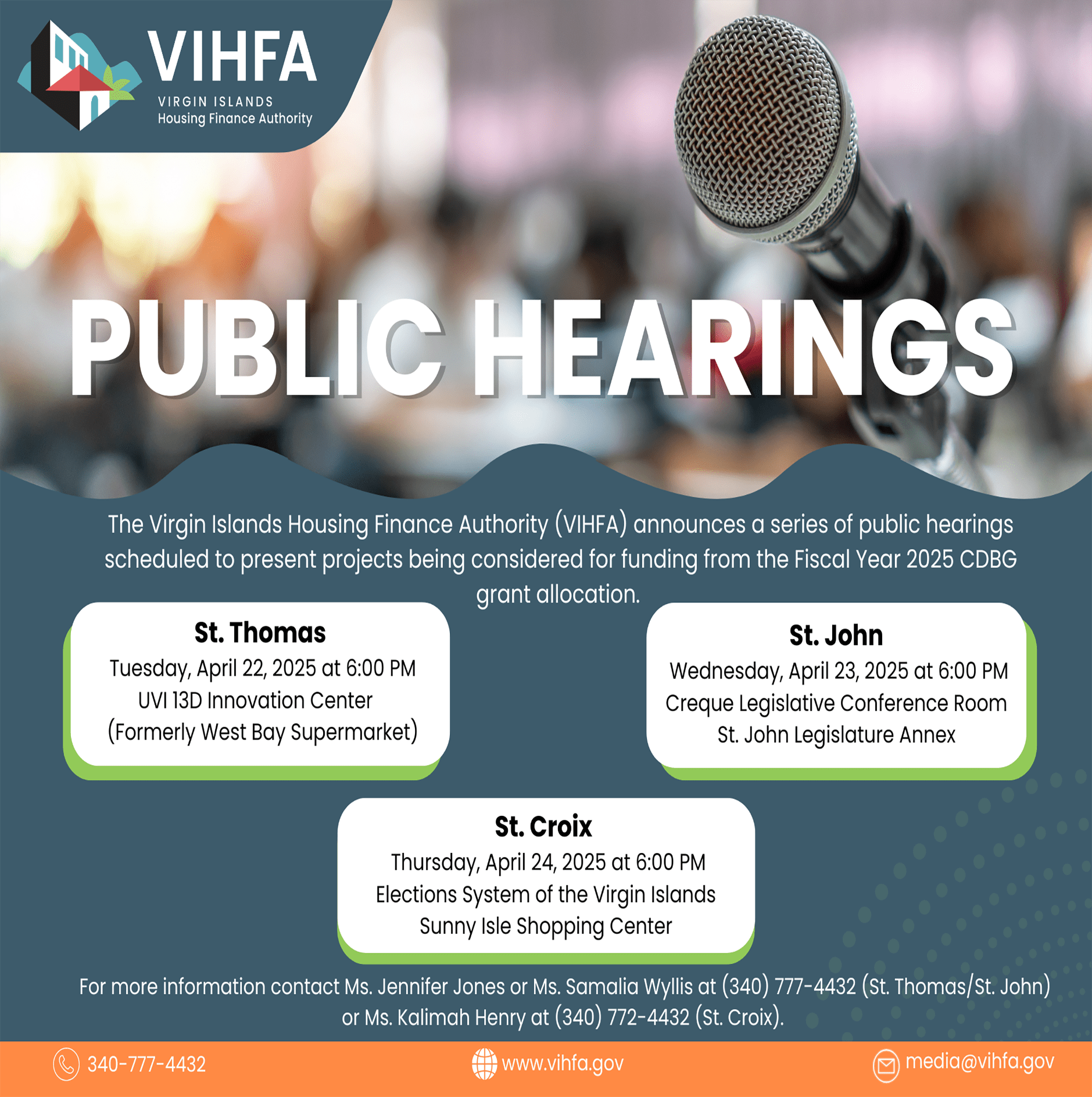
With early voting underway Monday and regular voting starting Nov. 4, Elections Supervisor Caroline Fawkes remains characteristically unflappable, but not without trepidation.
As a Virgin Islands National Guard helicopter pilot, Col. Fawkes flew U.S. senators and international terrorists in and out of Guantanamo Bay, Cuba. Determined and dedicated, the Crucian’s 22 years of military service spills over into her pledge to civilian service, she said. Fawkes has piloted the Elections System through eligibility disputes, a decade of lawsuits, and the painstaking process of collecting and counting ballots.
Yet the territory is always on the precipice of potential problems that even preparation and military precision may have difficulty surmounting, she worried. The storms slamming into Florida in recent weeks are a stark example.
“One of my worse fears is to have a natural disaster a month before election day,” Fawkes said. “However, we as election workers will do whatever we must to defend democracy.”
External factors aren’t the only threat. Unfounded conspiracy theories about voter fraud or rigged elections — the kind that sparked the Jan. 6 insurrection in Washington, D.C. — can lead to pessimism, distrust, and apathy. Disinformation, misinformation, and malicious malinformation serve to disenfranchise voters, she said.
“I encourage them to educate themselves, visit the offices and witness the processes with the voting machines for themselves. However, it’s important they participate in the process by casting their vote,” she said, then quoted Minnesota Attorney General Keith Ellison. “Not voting is not a protest; it’s a surrender.”
Fawkes said her vision is to regain the public trust and confidence in the election system and increase voter turnout by ensuring all elections are honest.
“Elections will be fair, accessible, secure, and transparent. My goal is an accurate report of timely elections results,” she said.
With an engaged, collaborative, customer-focused culture, the Elections Office is “an exemplary organization” with experienced staff, Fawkes said.
It’s that steady hand that has helped the Elections System weather a variety of storms.
In January, less than eight months before the primary election, District Court Chief Judge Robert Molloy ruled eight sections of the V.I. Code were unconstitutional and another section, barring political parties from using national party symbols, was preempted by existing federal law.
The ruling through primary contests for the Democratic Party and Republican Party, which had brought the suit, into an unwelcome state of confusion. Through it all, Fawkes and the Elections System remained unfazed, with the primary elections proceeding on time.
Then in August, Fawkes ruled would-be candidate for Delegate to Congress Ida Smith was ineligible. Smith had canceled her New York registration more than a month after the deadline to have only USVI registration, a requirement for the position, Fawkes said.
An emergency Elections Board meeting was held where Smith wanted to know why she was disqualified and Fawkes quoted existing law.
“As the supervisor of Elections, I follow the law as written, not what I wished it should be. Laws change and many persons revert to memory and old antiquated laws, not realizing the law has been amended and updated. I do my due diligence, read, read and comprehend the current laws,” she said in October.
Fawkes pushed back against those who said Smith had a slim chance of beating current Delegate to Congress, Stacey Plaskett. Odds of winning did not figure into Fawkes’ reading of the law, she said.
“That’s not my issue. Precedence and principles is my mantra. In God I trust, everyone else I check and verify,” she said.
Eventually, the Board of Elections overruled the disqualification and put Smith back on the ballot. It was a decision Fawkes disagreed with and hired a lawyer to protect herself and the integrity of the system, she said.
“No one influence me in any way to seek legal redress. Experience matters – 11 years in this position. I emailed the Board of Elections the next day and informed them I would be seeking legal counsel,” she said. “The Board of Elections and the Office of the Supervisor must fully perform our functions adhering to the letter of the law. This will continue way past my tenure.”
Fawks, 63, was born on St. Croix and joined the military after graduating from Central High School. She was the first female aide-de-camp to a general officer selected within the V.I. National Guard in 1982. By 1986, she was the first female Virgin Islander to become a pilot and serve in the V.I. National Guard, flying both helicopters and airplanes. Until 2002, Fawkes was the first and only female State Army Aviation Officer within the National Guard as a whole. From 1992 to 2002 she was the first and only female within the Armed Forces to pilot a C-23B Sherpa Aircraft. She obtained her Airline Transport Pilot License in 1997 and has more than 4,000 accident-free flight hours over 16 years.
Back home, she received a master’s degree in business management from the University of the Virgin Islands. She became supervisor of Elections in 2013 after 32 years in the military. As supervisor of Elections, Fawkes administers and regulates the territory’s election laws under the direction, control, and supervision of the Board of Elections. She’s championed early voting and other modernization initiatives to aid turnout.
Fawkes does have a few fears: snakes, creaky floors and stairs in old buildings, and spicy food. She faces these with two mottos: “Obstacles are only opportunities in disguise” and “Standards always – no compromise.”














